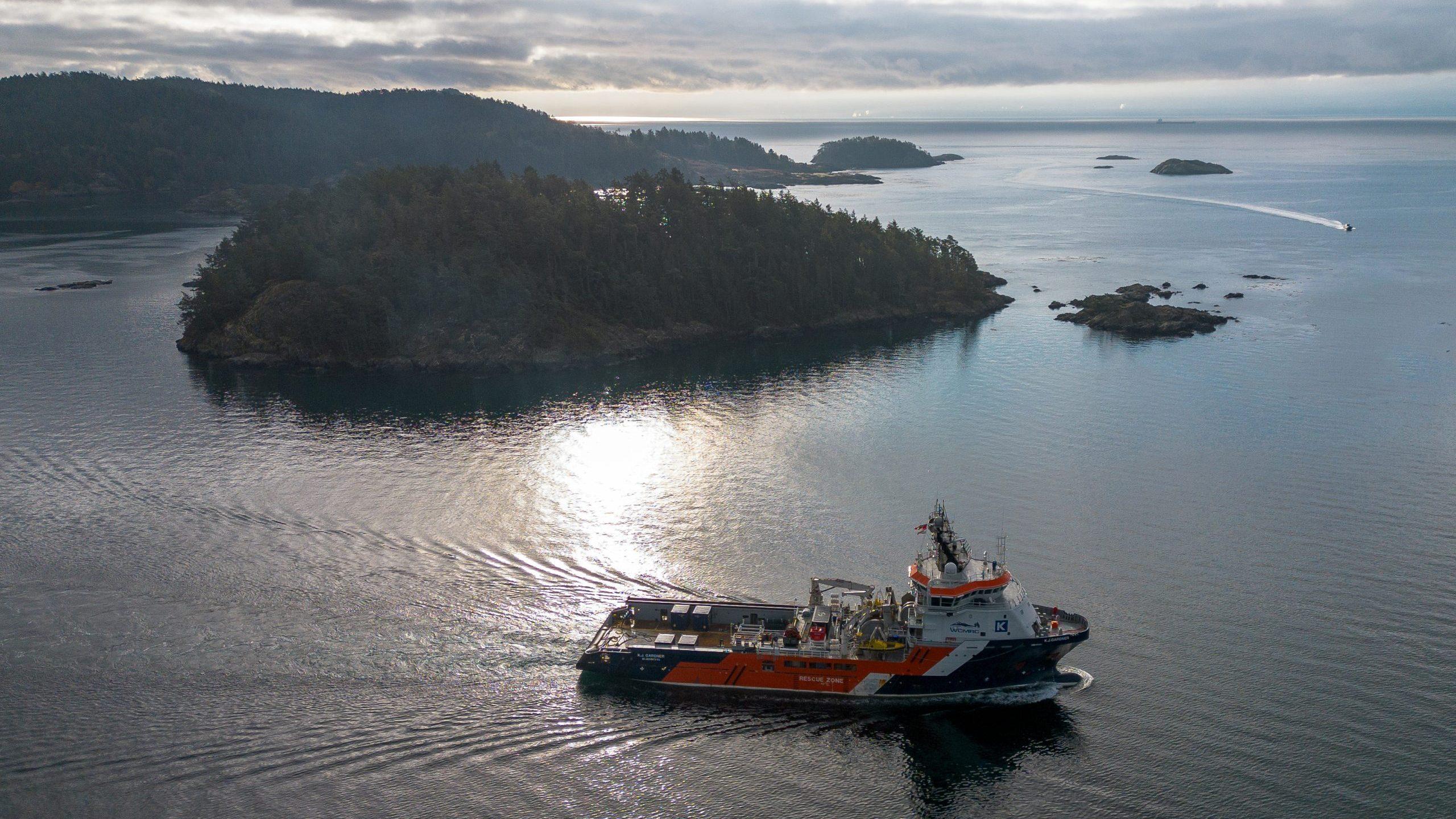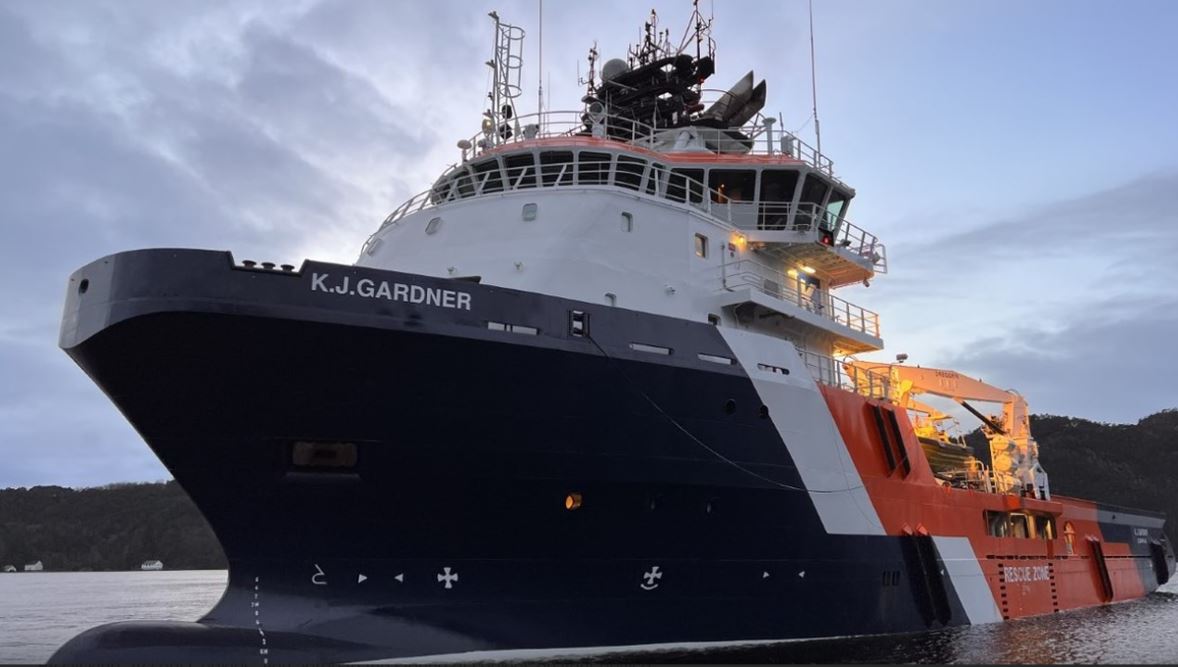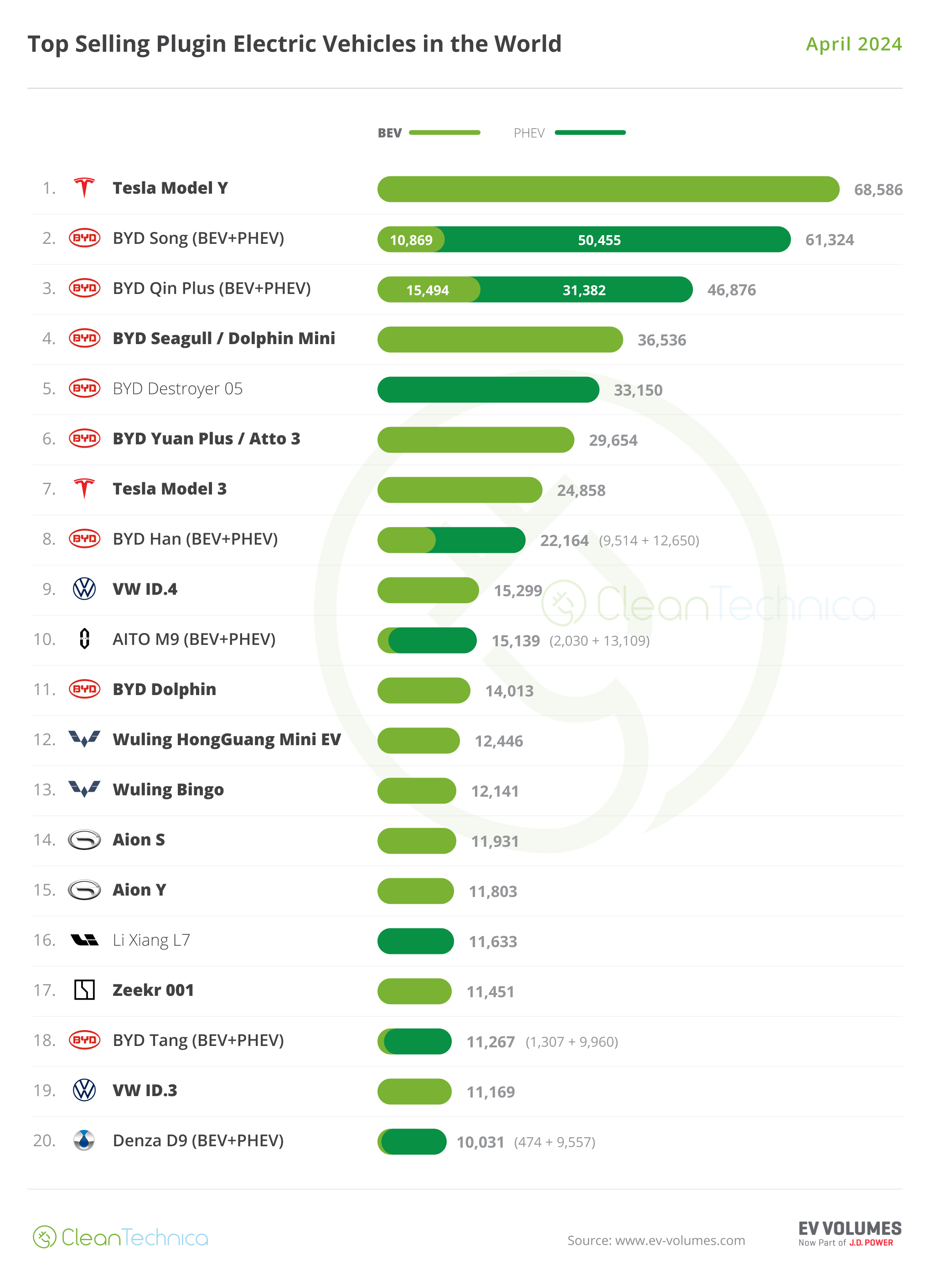Delivery of the K.J. Gardner is one of the final pieces of the biggest expansion of oil spill response in Canadian history

Canada’s largest-ever marine spill response vessel is now on the coast of British Columbia.
The vessel – as long as a ten-storey building and as heavy as about 50 Boeing 737 airliners – will reduce response time to within six hours compared to up to three days today.
It is one of the final pieces of the biggest expansion of oil spill response capability in Canadian history. The $150 million program is an investment by the Trans Mountain pipeline expansion that will have widespread safety benefits.
“As much as this expansion was funded by Trans Mountain, they’re available for any spill on the coast,” said Michael Lowry, spokesman for Western Canada Marine Response Corporation (WCMRC), the vessel’s new owner.
“It’s a benefit for the entire marine community to have this improved response capacity.”
WCMRC is the only Transport Canada-certified marine response organization on Canada’s west coast.
Its membership is mandatory for vessels of a certain size calling on ports, as well as for oil-handling facilities receiving or shipping oil across their docks.
Oil tankers have been loading from Trans Mountain’s Westridge Marine Terminal without a single marine spill in nearly 70 years of operations.
As part of the Trans Mountain pipeline expansion, which will increase oil tanker traffic, the company committed to double WCMRC’s spill response capacity.

This means adding six new spill response bases, including two 24/7 on-water bases, as well as doubling the size of its response vessel fleet from 44 to 88, and adding 137 full-time positions, primarily for spill response personnel.
One of the new vessels is the massive K.J. Gardner, named after WCMRC president Kevin Gardner, who has led the capacity expansion.
The vessel, built in 2009 by Havyard Leirvik in Norway, allows WCMRC to launch a large-scale response within six hours anywhere along the international shipping lanes.
It can hold up to 1,000 tonnes of recovered oil and can act as an emergency towing vessel. It has firefighting capacity and accommodation for 26 crew members.
From a new base at Beecher Bay on Vancouver Island, the vessel will be operated by KOTUG Canada in partnership with the Sc’ianew First Nation.
“We wanted to be the first phone call when there’s an accident and the only way to do that was not to accept what’s going on but to participate in what’s going on as an equal partner,” said Sc’ianew First Nation cheif Russ Chipps in a video posted by Trans Mountain.
Lowry said WCMRC works with First Nations to help identify sensitive sites on the coast as well as training communities to support marine protection activities.
“They’re a key role in spill response on the coast. Their communities will likely be some of the first impacted by a spill so it’s absolutely crucial to be involved in response planning,” he said.
Overall, he said the WCMRC capacity expansion is nearly complete.
“We’ve doubled the size of our fleet from 44 vessels to 88 vessels. We’ve also added new mariners, new employees. We’ve gone from an organization of about 30 full-time staff to now 200 plus full-time staff,” he said.
“It’s been a very significant expansion over the last five years. That’s all funded by Trans Mountain to meet that requirement that they committed to the federal government.”
Trans Mountain expects to complete the long-awaited expansion in the second quarter of 2024.
Share This:



